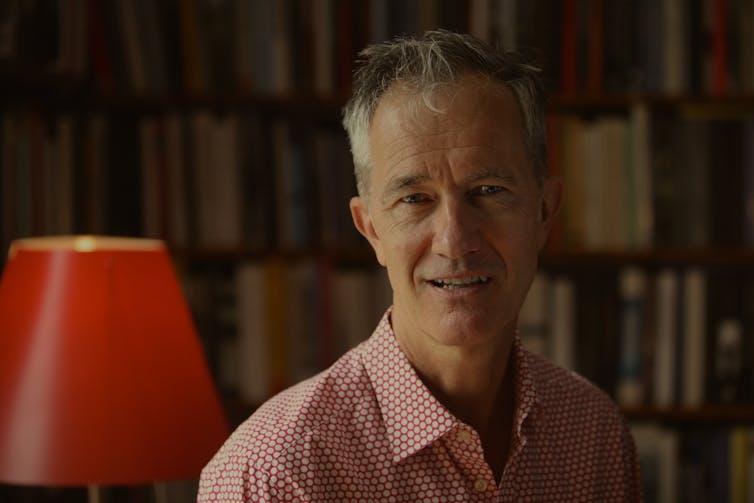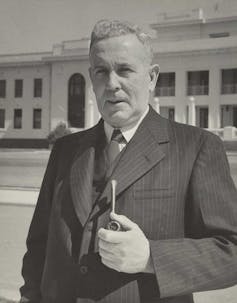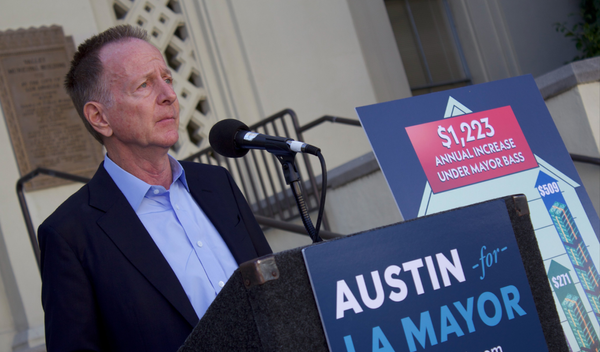
As a child, the writer Geoff Dyer made regular Friday visits to the house where his father was raised and where his father’s sister, Auntie Joan, still lived. While his parents talked with Joan, Geoff slipped upstairs. The landing’s ageing wallpaper was “brown or gloomy yellow”. Here stood a glass cabinet of stuffed birds. Taxidermised rooks, sparrows and thrushes were displayed, seeming at once spooky and long dead, and “full of life” – poised to swoop or take flight.
Conjuring them in his memoir of growing up working class in 1960s and 70s England, Dyer wonders if they were perhaps heirlooms connected to his great-grandfather’s “rustic” occupation as a bird-catcher.
Review: Homework: A Memoir – Geoff Dyer (Canongate)
The past, both in an intimate, personal sense and a broader, social sense, has this dual quality throughout Homework. The past is stale, petrified, a “whole vanished world of perception”, as novelist Tessa Hadley expresses it. Yet the past also makes its presence and liveliness constantly and stubbornly felt. Dyer is interested in the tangled relationship between what is inherited – not material heirlooms but psychic and cultural residues – and the present.
Dyer was born in Cheltenham, England in 1958. World War II is a constant reference point in his descriptions of childhood games, toys, crazes and collectables. Postwar rationing gave way to a welfare state (the “heyday” of the National Health Service), increased affluence, processed foods and consumer culture. Dyer’s intensely private working-class family had a toehold in this new age of Global North plenty.

Childhood: amazingly detailed memories
Childhood involves the forming of consciousness, Dyer writes in the first half of the book. But it also (and this is emphasised) represents its own realm of consciousness. Objects, happenings, misunderstood and mispronounced words imprint themselves strongly, as Janet Frame’s first memoir To the Is-Land so intensely captured.
Like Frame’s, Dyer’s writing about his childhood is amazingly detailed. I suspect that if I was a bloke and/or British and/or a boomer, I would have enjoyed moments of heightened pleasure in shared cultural references, and perhaps would also have found this book funnier.
However, the jokiness of Homework is a sedimentary layer; its substratum is a subtle existential meditation on the whole, small world of one’s childhood, the making of classed selves, and how our expectations, desires and disappointments are historically conditioned and shaped by class.
Dyer’s dad, Arthur, was descended from generations of Gloucestershire peasantry and worked for an aircraft manufacturer. After that factory closed, he worked at the British Nylon Spinners, which produced nylon yarn. His everyday practices were derived from pre-war realities of scarcity, thrift and resourcefulness. When the family car – a sky-blue Vauxhall Victor that was Arthur’s “proudest possession” – needed petrol, he filled the tank half full. A full tank of petrol was regarded as an indulgence.
A tank full of petrol is also a tank filled with promise: constrained expectations are a theme Dyer returns to throughout his memoir, with understanding tinged at turns with bemusement, frustration, pride and sadness.

There was also the front room that went unused, filled with heavy furniture and a locked cocktail cabinet housing bottles that were seldom or even never opened. This room had a “strange negative power”; it represented a secular investment in the value of saving. Life in the present “had to be subordinated” to the life that would never come, since Arthur did not believe in religious salvation.
Alongside deferral, deference is an important theme of Homework. Dyer evokes a remembered childhood trip to a doctor as an encounter with an alien middle-class professional. Doctors were possessed of “extraordinary knowledge and power” and in their presence Arthur became timid.
Due to his deference to this class power, when Arthur had a hip replacement late in life, he made no effort to comply with the regime of physical therapy that was prescribed. The reason? Arthur could not accept he might also have an active role to play in his recovery. “He was a willing patient, someone things were done to.”
The mirror image of this deference lies in Dyer’s parents’ aversion to themselves ever being served (which is distinct from being expertly ministered to): they neatly made the beds on the rare occasion they holidayed, rather than leave this task to the hotel maid.
Education: the ‘big divider’
The book’s title, Homework, reflects the centrality of education to the plot of this life and memoir. Dyer calls the 11-plus test, universally undertaken by students at his state primary school, the “big divider, the forger of destinies”.
Dyer notes that the 11-plus test’s primary function was to ensure a steady supply of workers: kids who failed the 11-plus test went on to secondary moderns, apprenticeships and jobs in trades and factories.
Indeed, while reading Homework, I went back to Paul Willis’ Learning to Labour, a classic ethnography set in the mid-1970s industrial Midlands, not far from Cheltenham, in a secondary school given the pseudonym Hammertown Boys.
Here, a group of white “lads” expressed their scorn for formal education and rejection of institutional authority, dedicating themselves to practical jokes, “having a laff”, terrorising their teachers and demonstrating their superiority to “ear’ols”: those who listen at school, submitting to their teachers.
Willis shows how the Hammertown lads – spirited, sexually confident rebels, who were also misogynistic and racist – belonged to a collective class culture that both prepared them for, and trapped them within, repetitive manual labour on a shop floor.
Dyer’s book essentially attends to a different variety of working-class cultural values belonging, roughly, in the same era. Dyer passed the 11-plus and went on to grammar school. He regards this as the “most momentous event of this life”: “Everything else that has happened couldn’t have happened if it were not for that.”
At grammar school, Dyer was taught by Bob Beale, the devoted head of English, who became a huge influence. The second half of Homework concerns Dyer’s years at grammar school, as his passions and aspirations became increasingly incommunicable to his parents.
Visiting Chifley’s home
In autumn, I visited Bathurst with my partner and one of our teenage sons, Billy, a keen student of labourism. We wanted to take Billy to the Chifley Home and Education Centre, the modest house where postwar Labor prime minister and former train driver Ben Chifley lived with his wife Elizabeth, which has been turned into an excellent museum.

In fact, we realised we had booked a cheap room to stay in the same Bathurst hotel where Chifley chaired a significant 1948 meeting of cabinet ministers that resolved to order striking coal miners back to work. Chifley’s Labor government sent in troops to break the militant coal miners’ seven-weeks-long strike in 1949.
I took photos of Elizabeth Chifley’s handwritten recipe cards – for scones, “kisses” and green mint jelly – and a paisley eiderdown, which I swear was exactly the same as one my nanna had. On the wall of the tiny Chifley kitchen hangs an exotic tapestry depicting a refined, bejewelled woman, a basket of tropical fruit and a very plump parrot – I viewed it as an oblique reminder that the now besieged welfare states of the Anglosphere were built from the wealth of Empire.
The tale of Chifley’s personal and political life has distinctly Australian twists – he was sent away as a child to assist a cruel relative who lived in a wattle and daub hut, for example. Yet being in his home transported me to the same era and ethos that Dyer movingly depicts.
Thwarted desires
Dyer returns again and again throughout Homework to his dad’s miserliness. Arthur’s tightness with money, he explores, was not an expression of mean-spiritedness, but caution – and I should note that a generalised xenophobia was also an outcrop of this caution.
The source of this miserliness and obsession with saving lay in both his parents’ pasts, in the 1920s and 30s. It is best understood as expressing a “relation to the world”: a relation geared to subsistence. The “soil” in which his parents were “rooted”, Dyer writes, “was that of scarcity”. Arthur may have been miserly to sometimes absurd extremes, but Dyer also represents his father as unfailingly honourable.
In dwelling on Dyer’s father’s character so far, I have followed Dyer’s lead: it’s only in the final parts of the book that Dyer can face a careful, extended exploration of his mother’s narrow world and the multiple, painful reasons for her low expectations for herself, although she is certainly present throughout the whole book.
Mary Dyer worked as a “dinner lady” at the local primary school Dyer attended (“canteen lady” is the Australian term.) She was born on a farm in Shropshire. Centuries of rural life had instilled expectations of obligation and hardship. From birth, Mary bore a more particular burden still, which I feel would be rudely exposing to set out here. She was skilled with her hands and wished she had become a seamstress.
In Alan Hollinghurst’s superb 2024 novel, Our Evenings, the protagonist David’s sole mother is a seamstress. I wept reading the scene where David and his mother’s friend finally clean out her wardrobes after her death. They were stuffed with her creations, “her life’s work”.
Dyer wonders if this was a fantasy of Mary’s, one of a number of things she claimed she would have loved to have done. After all, she clearly thrived in the canteen, in the role of serving others. And she was close to her workmates, anecdotes about whom she retold to the family and repeated throughout her drawn-out dying.
Or did this thwarted desire represent the deeper feeling that was always with her? That things that Mary might have wanted, wished for, were not accessible to her. It was not her place to have them.
Some of the sweetest moments in this memoir are set in the present. When Geoff was a child, the Dyers worked an allotment. Theirs was neat and intensively cultivated, with rows of root vegetables and onions, climbing runner beans and rhubarb.
Years after the Dyers had given up theirs, the allotments, these now hemmed-in refuges “from commerce”, remain: Dyer and his wife go walking past them while visiting Cheltenham. And in another passage, Dyer explains the ancient Gloucestershire dialect one of his relatives spoke, as well as other characteristic habits of speech family members employed, including habitual mispronunciation.
“My wife and I have adopted and preserved most of these usages,” he writes. “We love keeping my mum and dad alive like this.”
Eve Vincent does not work for, consult, own shares in or receive funding from any company or organisation that would benefit from this article, and has disclosed no relevant affiliations beyond their academic appointment.
This article was originally published on The Conversation. Read the original article.







